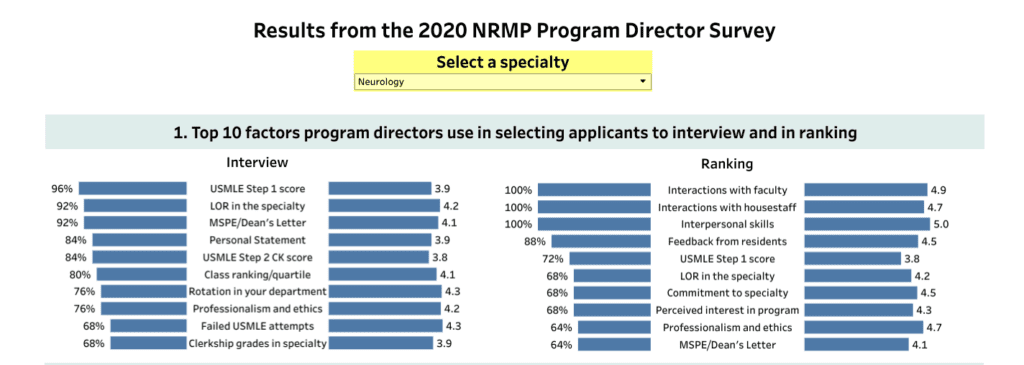Navigating Neurology Residency as an International Medical Graduate (IMG): An Analytical Perspective
December 20, 2023
The journey toward securing a Neurology Residency in the United States for International Medical Graduates (IMGs) can be dissected into two primary dimensions: Quantitative (Q1) and Qualitative (Q2) metrics. An analysis of recent match data reveals that out of 846 available Neurology positions, 843 were filled, including 56 by U.S. IMGs and 170 by non-U.S. IMGs. This translates to approximately 27% of these positions being occupied by IMGs, highlighting the significance of specific factors in the application process.
A critical examination of the application dynamics to Neurology residency programs is essential. In 2022, over 45% of applications were rejected based on criteria including the SUVY Score, which encompasses US Clinical Experience, Visa status, and Year of Graduation. This statistic indicates that only 55% of applications undergo a holistic review, emphasizing the need for candidates to optimize controllable elements such as USMLE Scores and US Clinical Experience, while acknowledging the limitations imposed by factors like visa status.
Quantitative Metrics: USMLE Scores The transition of the Step 1 USMLE score to a pass-fail model has shifted the focus to the quantitative Step 2 CK score, now a critical factor in over 90% of interview selections and re-evaluated for the rank order list post-interviews. The average Step 2 CK score for matched Neurology applicants stands at approximately 246, setting a challenging benchmark for IMGs. This shift underscores the imperative of excelling in Step 2 CK, especially as program directors often emphasize these scores for IMG candidates.
Qualitative Metrics: Letters of Recommendation and MSPE In the realm of Neurology, a recommendation from a field expert considerably enhances an application. These endorsements affirm the candidate’s aptitude for the specialty through various lenses:
-
- Professional Validation: LoRs attest to an applicant’s skills, knowledge, and suitability for a Neurology residency.
-
- Insight into Clinical Competence: Recommenders often detail the applicant’s performance during clinical rotations or research projects, influencing program directors’ perceptions.
-
- Personal Attributes: LoRs typically underscore personal traits like work ethic and interpersonal skills, crucial for thriving in Neurology.
-
- Differentiation and Fit: These letters distinguish applicants in a competitive field and help assess their fit for specific programs.
-
- Validation of Interest: A recommender’s endorsement of the candidate’s dedication to Neurology is a powerful testament.
The MSPE, or Medical Student Performance Evaluation, serves as a comprehensive academic profile, detailing not only grades but also performance in clinical rotations, which is particularly pertinent for Neurology. It assesses clinical competence, professionalism, and personal attributes, provides a comparative assessment, identifies any red flags, and overall, portrays the applicant’s suitability for residency.
Interviews: A Pivotal Step Securing an interview is a critical milestone in the residency application process, often leading to a high likelihood of being ranked. Aspiring neurologists should seek interviews with multiple programs to optimize their matching prospects.
A Closer Look at IMGs in Neurology The 2022 Match data show that Neurology maintains a moderate level of receptiveness to IMGs, with 122 US IMGs and 370 non-US IMGs applying, and 66 US IMGs and 185 non-US IMGs successfully matching. This translates to a 51% match rate for IMGs, indicating the specialty’s openness to a diverse pool of medical graduates.
Strategic Application Planning Informed by NRMP’s specialty-specific statistics, IMGs can develop targeted applications. Understanding the intricacies of the field and aligning applications to these metrics can significantly enhance the chances of securing a Neurology residency position.
In conclusion, the landscape for IMGs in Neurology, characterized by moderate openness and significant match rates, presents both challenges and opportunities. A sophisticated, data-driven approach is crucial for IMGs striving to navigate this pathway successfully.
MGPrep is a leading educational consulting firm dedicated to assisting IMGs in reaching their goals, dreams, and potential. Check out our other Articles and learn more about IMGPrep services at: www.IMGPrep.com.
IMGprep is not associated with the AAMC® NRMP®the MATCH® or the ECFMG

